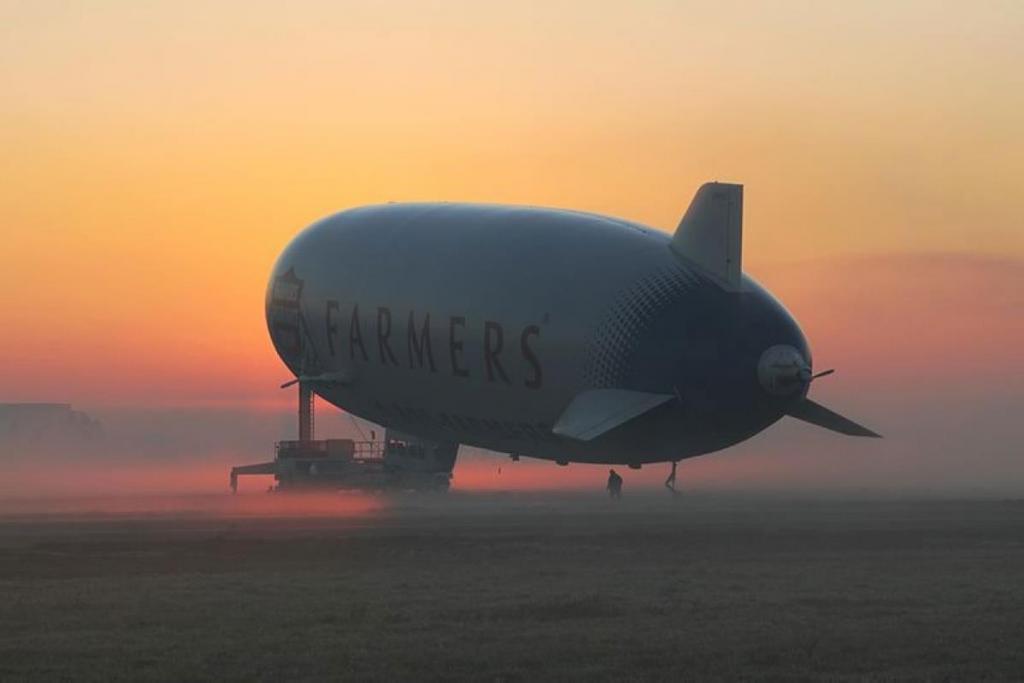Events 2020
23
Jan
2020
18:00
RAeS lecture in cooperation with DGLR, HAW-Hamburg & VDI
Featuring one of the most voluminous cargo holds of any civil or military aircraft flying today, the Airbus Beluga plays a key role in keeping Airbus production and assembly network operating at full capacity. The current fleet of 5 Beluga, based on A300-600, carries complete sections of Airbus aircraft from different production sites around Europe to the final assembly lines in Toulouse, France and Hamburg, Germany.
To support the A350 XWB ramp-up and other production rate increases, Airbus will gradually replace its current Beluga’s with six BelugaXL aircraft, derived from the company’s versatile A330 widebody product line. Veronique Roca, Chief Engineer of the BelugaXL, will tell us about the BelugaXL since its launch in Nov 2014. With the First Flight in July 2018, the BelugaXL is now completing the Flight Test Campaign and will achieve certification in Q4 2019.
Veronique has been BelugaXL Technical Director & Chief Engineer since 2016. As part of her mission she holds the Technical Authority to define and validate the target configuration of the aircraft, in line with operational and certification requirements, and meeting highest safety standards. Previously, Veronique was A330 Chief Engineer for France for two years.
![]() Poster_2020_01_23_BelugaXL-3.pdf (143 KB)
Poster_2020_01_23_BelugaXL-3.pdf (143 KB)
Presentation
![]() Text_2020_01_23_BelugaXL-2.pdf (6,60 MB)
Text_2020_01_23_BelugaXL-2.pdf (6,60 MB)
Time:
18:00 Uhr

19
Mar
2020
18:00
Due to the ongoing coronavirus situation and the decisions taken by the City of Hamburg and the University (HAW), we have to cancel this lecture and the one on 2 April. We hope to bring it to you at a later date.
RAeS lecture in cooperation with DGLR, HAW-Hamburg & VDI
Lecture in English
Describing the life of a Royal Air Force fighter pilot in the 1970s with a focus on the exciting job of chasing Soviet Tu-95 'Bear' long-range reconnaissance aircraft over the North Sea as they approached UK airspace.
In addition Nick will also talk shortly about his experiences flying the A340-600 and other Airbus aircraft
During a 19 year career in the RAF, Nick moved from the Phantom to the Hawk T1 trainer as an A1 fast jet Qualified Flying Instructor, then back to the Phantom to become a Qualified Weapons Instructor. He then moved to Australia on an exchange tour flying the F/A 18 for the No 77 Sqn RAAF, and finally back to the UK to fly the Panavia F3 Tornado Air Defence Variant.
After obtaining his Air Transport Pilot’s Licence and leaving the military, Capt. Nick joined Virgin Atlantic Airways flying the Airbus A340-300, Airbus A340-600, and the Airbus A330-300 on long haul flights.
Listen to podcast with Nick Anderson
![]() Poster_2020_03_19_Chasing_Bears.pdf (160 KB)
Poster_2020_03_19_Chasing_Bears.pdf (160 KB)
Time:
18:00 Uhr

02
Apr
2020
18:00
Due to the ongoing coronavirus situation and the decisions taken by the City of Hamburg and the University (HAW), we have to cancel this lecture. We hope to bring it to you at a later date.
RAeS Lecture in cooperation with DGLR, HAW-Hamburg & VDI
(Lecture in English)
The lecturer will describe the start of his career working at Avro in Canada and Boeing in Seattle before moving to France to work on the Concorde project.
He will discuss the reasons for Concorde’s unique shape giving examples of the design evolution and describe the powerplant installation with its complex control system.
He will conclude by discussing the post entry-into-service problems and end by showing the development potential of the basic Concorde design.
The lecture will give an insight into the methods used in the 1960’s to design this unique aircraft
Time:
18:00 Uhr

14
Apr
2020
17:00
Der VDI lädt ein zum Vortrag in Kooperation mit DGLR, RAeS, ZAL und HAW Hamburg
Andrea Wächter wird zusammen mit einem Kollegen aus der Technik aufzeigen, was alles passiert, um einen Flug sicher von und nach Hamburg durchzuführen. Wie wird die Sicherheit hergestellt? Wie kann die Sicherheit bei der ordnungsgemäßen Flugdurchführung noch weiter erhöht werden? Weitere Stichworte aus dem Vortrag: Flugwegeoptimierung, Drohnen, Fluglotsen: Mensch und Computer, Lufttaxis, Technik: VOR, NDB, GPS, Radar.
Die Anzahl der Teilnehmer ist auf 50 begrenzt. Eine Anmeldung ist erforderlich bis 6. April 2020 dies und weitere Infos: https://purl.org/AeroLectures/2020-04-14-Anmeldung
![]() poster_2020_04_14_DFS-Hamburg.pdf (414 KB)
poster_2020_04_14_DFS-Hamburg.pdf (414 KB)
Time:
17:00 - 19:00 Uhr

14
May
2020
18:00
Due to the ongoing coronavirus situation we have decided to cancel this lecture. We hope to bring it to you at a later date.
RAeS Lecture in cooperation with HAW-Hamburg, DGLR, VDI & ZAL
(Lecture in English. This lecture replaces the original planned lecture which has had to be postponed until 2021)
There is nothing more international than air, yet most histories of aviation take a very national view. In this talk a contrast will be drawn between such narrow approaches and the actual experience of aerospace engineers in Germany and Britain since the middle of the twentieth century.
The detailed exploration of V/STOL aircraft, the Tornado and Typhoon programmes and the evolution of Airbus will show the ways in which German thinking about aircraft, project management and collaboration have shaped the development of the British industry.
Although recent events may seem to challenge the future of British integration with the European aerospace industry, the talk will show that the interdependence will likely continue, and will briefly explore future prospects, such as FCAS (Future Combat Air System).
![]() Poster_2020_05_14_German_British.pdf (108 KB)
Poster_2020_05_14_German_British.pdf (108 KB)
Some articles in RAeS Aerospace by Mike Pryce
- 30 years of hurt - is UK combat aircraft design coming home?
- Tornado - the secret of its success? Maintenance!
- 21st Century Boyd's – US goes back to the future
30 years of hurt - is UK combat aircraft design coming home?
Time:
18:00 Uhr

28
May
2020
18:00
DGLR lecture in cooperation with HAW Hamburg, RAeS Hamburg, VDI & ZAL
So alt wie die Raumfahrt ist die Idee von Raumfahrzeugen mit Flügeln für die Rückkehr nach ihrer Mission ins All. Vereinzelte Entwürfe benötigen Flügel auch für den Start. Insgesamt sollte damit eine Wiederverwendbarkeit von Raumflugkörpern etabliert werden. Allerdings erreichten zahlreiche Konzepte nie die Einsatzreife, obwohl z.B. das deutsche Transportsystem "Sänger" durchaus zukunftsträchtig erschien. Erfolgreich war hingegen der 30 Jahre lange Einsatz der Space Shuttles der NASA von 1981 bis 2011 als Multifunktions-Raumtransporter, welche u.a. zum Aufbau der Internationalen Raumstation ISS genutzt wurden. Für neue staatliche und private Raumfahrtprogramme kommt derzeit (z.B. für die X-37B) und künftig (z.B. für den "Dream Chaser" und die XS-1) auch wieder Shuttle-Technologie zur Anwendung.
Time:
18:00 Uhr

04
June
2020
18:00
DGLR lecture in cooperation with HAW Hamburg, RAeS Hamburg, VDI & ZAL
This is an online lecture. Click on the link to attend
In 2019 EASA started work on a definition of a labeling system for the aviation industry. Work with students at HAW Hamburg lead to a definition of an Ecolabel for Aircraft already in 2017. The lecture reports on international progress with reporting and labeling schemes related to aircraft. The HAW Hamburg definition of an Ecolabel for Aircraft is explained, based on which commonly used passenger aircraft are evaluated. This leads to straight advice for travelers about what to observe when booking a flight in order to limit the environmental footprint.
Time:
18:00 Uhr

16
June
2020
18:30
Due to the ongoing coronavirus situation we have decided to cancel this lecture. We hope to bring it to you at a later date.
Annual Gerhard Sedlmayr Lecture
RAeS lecture in cooperation with DGLR, HAW Hamburg, VDI & ZAL
Lecture in English
Time:
18:30 Uhr

10
Sep
2020
18:00
RAeS Lecture in cooperation with DGLR, HAW-Hamburg & VDI
More information about Rich Graham
The world’s fastest and highest flying aircraft was conceived as early as 1958 by the renowned aircraft engineer, Kelly Johnson. The gigantic leap in technology he and his engineers had to overcome at the Lockheed “Skunk Works” was phenomenal. Built in total secrecy, the first Blackbird flew on April 26, 1962. The Blackbird’s only purpose was to gather highly classified intelligence on hostile countries around the world. Flying at Mach 3+ speeds and cruising at over 85,000 feet, the SR-71 could survey over 100,000 square miles every hour, gathering millions of bits of intelligence. When cruising at over 2,200 mph, with skin friction temperatures reaching 600 degrees F., the SR-71 performed at its very best.
Col. Richard Graham flew the Lockheed SR-71 Blackbird from 1974-1981.
Time:
18:00 Uhr

01
Oct
2020
18:00
DGLR lecture in cooperation with RAeS, VDI & HAW Hamburg
This is an online lecture. Click on the link to attend
Vortrag auf Deutsch
Der Vortrag stellt den Flugversuch in den heutigen Kontext der Luftfahrt mit seinen Verknüpfungen zur Zulassung und Entwicklung des Luftfahrzeuges. Welche Anforderungen gibt es? Welche Vorgaben der EASA müssen beachtet werden. Was ist ein Entwicklungsbetrieb? Anhand von Beispielen aus der täglichen Arbeit wird die praktische Umsetzung der Flugversuche dargestellt. Zusammen mit den beteiligten Wissenschaftlern bereitet der Projekt- und Entwicklungsingenieurs die Flugversuche vor und übernimmt die Verantwortung für die strukturelle Implementierung der Flugversuchsinstallationen. Für einen sicheren Betrieb des Versuchsträgers bei sich ständig ändernden Versuchseinbauten ist die Konfigurationsdefinition und Konfigurationskontrolle unerlässlich.
Dipl.-Ing. Florian Antrack hat Flugzeugbau an der HAW Hamburg studiert und war von 2003 bis 2017 im Flugversuch des DLR tätig. In seinem Vortrag berichtet er über das Leben im Flugversuch. Exemplarisch werden verschiedene Flugversuchskampagnen des DLR und ihre Hintergründe dargestellt. Dabei wird auf die verschiedenen Versuchsträger eingegangen.
Time:
18:00 Uhr

05
Nov
2020
18:00
RAeS lecture in cooperation with DGLR, HAW-Hamburg, VDI & ZAL
There is nothing more international than air, yet most histories of aviation take a very national view. In this talk a contrast will be drawn between such narrow approaches and the lived experience of aerospace engineers in Germany and Britain since the middle of the twentieth century.
The detailed exploration of V/STOL aircraft, the Tornado and Typhoon programmes and the evolution of Airbus will show the ways in which German thinking about aircraft, project management and collaboration have shaped the development of the British industry.
Although recent events may seem to challenge the future of British integration with the European aerospace industry, the talk will show that the interdependence will likely continue, and will briefly explore future prospects, such as FCAS.
![]() poster_2020_11_05_GermanBritish-2.pdf (336 KB)
poster_2020_11_05_GermanBritish-2.pdf (336 KB)
Download Lecture Notes
Time:
18:00 Uhr

11
Nov
2020
19:00
This is a lecture organised by the RAeS Munich Branch
Willy-Messerschmitt-Lecture 2020 “Alternative und klimaneutrale Treibstoffe für die (zivile) Luftfahrt”, by Dr. Valentin Batteiger (Bauhaus Luftfahrt)
Diese Veranstaltung wird Hybrid-Format (Online&Vorort) durchgeführt, da nur begrenzte Sitzplätze (20) vor Ort zur Verfügung stehen. Zusätzlich werden wir den Vortrag in einem LiveStream im Internet für unsere Mitglieder anbieten.
The link for the live-stream is WML2020
If you missed the lecture you can still see it on YouTube.
Time:
19:00 - 20:30 Uhr

19
Nov
2020
18:00
DGLR-Hamburg lecture in cooperation with RAeS, HAW, VDI & ZAL
This is a special online lecture celebrating the 50th Anniversary of the founding of the DGLR Hamburg Area Group
Hydrogen aircraft research from Hamburg Universtiy for Applied Sciences between 2006 and 2020 is presented to show how to move forward.
![]() poster_2020_11_19_HydrogenAircraft.pdf (401 KB)
poster_2020_11_19_HydrogenAircraft.pdf (401 KB)
Download Lecture Notes
Time:
18:00 Uhr

10
Dec
2020
18:00
DGLR lecture in cooperation with RAeS, HAW, VDI & ZAL
 Lecture in English
Lecture in English
For a group of missions, airships can provide an answer to the goals set by Flightpath 2050 such as drastic emission reductions, safety, and cost reduction. Where slow and low flying as well as vertical take-off and landing are prerequisites, airships offer a tried and tested alternative with considerable fuel savings. The lecture is dedicated to the topic of eco-efficiency in aircraft design. Advantages of airships versus obstacles and boundary conditions in airship development are discussed.
![]() poster_2020_12_10_Airship.pdf (282 KB)
poster_2020_12_10_Airship.pdf (282 KB)
Download Lecture Notes
Time:
18:00 Uhr


